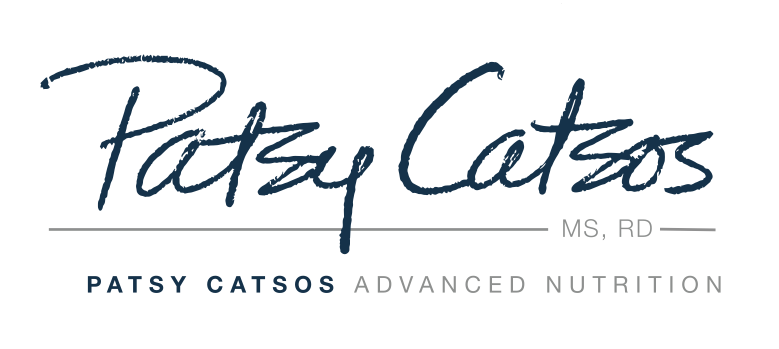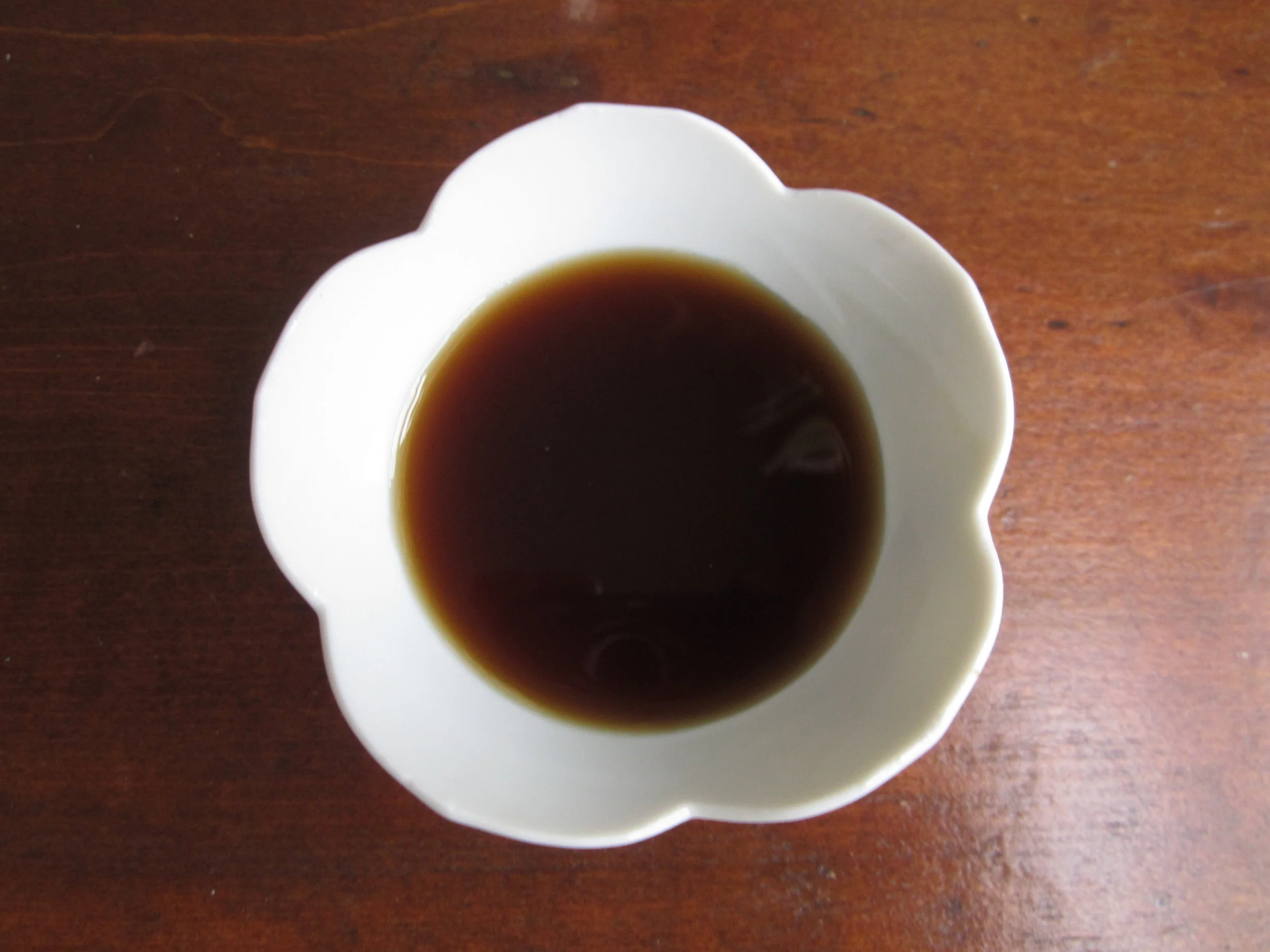If you’ll be starting a FODMAP Elimination Diet today, or perhaps after the long weekend, this post is for you! Whether you are trying this dietary experiment for the first time, or getting ready for a do-over, today’s post will help you make a great start.
What Spices Can I Use on a Low FODMAP Diet
Q. What spices can I use on a low FODMAP diet?
A. The short answer if that most herbs, spices, and flavorings can be used on a low FODMAP diet. Don’t worry about spices, except those containing onion or garlic.
Determining the FODMAP Status
Information about the FODMAP content of herbs, spices, and flavorings comes from the FODMAP lab at Monash University. Because they know it’s a tall order to make food without onions or garlic, the Monash team has invested a lot of effort into testing herbs and spices from around the world. Several samples of each individual item are collected, pooled together, and freeze-dried, then tested with specialized laboratory equipment. The results are translated into the Monash University Low FODMAP app where low FODMAP servings are labeled with a green light. You will find that some herbs or spices can be low, medium, or high FODMAP depending on the serving size.
The Alliums
Bulbs of onions, garlic, and shallots are high in FODMAPs.
Onions, garlic, and shallots, members of the allium family, are especially significant sources of FODMAPs. There are no low-FODMAP serving sizes for most of them. It doesn’t matter how little you use! Even onion and garlic powder or flakes should be eliminated on a low-FODMAP diet. Leek bulbs are the exception. They do have a low-FODMAP portion size of 1 tablespoon. Beware of spice blends, which often include onion and garlic pieces or powders.
Ordinary cooking and baking
In the amounts used in the United States for everyday cooking and baking, that vast majority of herbs, spice, and flavorings are low-FODMAP or have low-FODMAP serving sizes. A few herbs or spices are used in larger amounts. Even then, your individual portion of the recipe is unlikely to contain more than a teaspoon of cinnamon, cumin, or chile powder, the typical low-FODMAP serving size for such things. If you cook with or eat entire chile peppers, check the app for details on low-FODMAP serving sizes.
Other flavorings
Fresh lemon juice, fresh lime juice, and most vinegars are also low-FODMAP when used in ordinary amounts (balsamic vinegar has a limited low FODMAP portion). They can add so much lively flavor to your recipes! The green parts of scallions, leeks and garlic (scapes) are low in FODMAPs, too. Prepared condiment should be considred on a case-by-case basis. Most soy sauces, tamari, prepared mustards, and certain vinegar-chile hot sauces don’t have high FODMAP ingredients. But many other condiments and salad dressings do contain onion, garlic, or high-fructose corn syrup so read labels carefully. Choose brands that don’t have high FODMAP ingredients or those that have been lab-tested to check their FODMAP status. Several brands of low-FODMAP specialty foods are available, with seasoning blends, salsas, and sauces that add lots of flavor to you low-FODMAP diet.
Medicinal use
If you are taking large amounts of an herb or spice for some medicinal purpose, you will have to pay more attention to the limits on the low FODMAP serving sizes. Please refer to the Monash University FODMAP Diet app for specific limits.
Shop for low-FODMAP groceries here.
This page may contain affiliate links. We are a participant in the Amazon Services LLC Associates Program, an affiliate advertising program designed to provide a means for us to earn fees by linking to Amazon.com and affiliated sites.
Secrets to Successful Low-FODMAP Baking, Part 2
This is a continuation of Lisa Rothstein’s guest post about low-FODMAP, wheat-free baking. Lisa has much more to share today to help you become a successful low-FODMAP baker--this is a treasure trove of information and tips for bakers.
Secrets to Successful Low-FODMAP Baking, Part 1
FODMAPs for Vegans
Update: Sweeteners and FODMAPs
Can IBS Lead to Other Conditions?
Q. Can IBS lead to diverticulitis? What about megacolon? Cancer? Inflammatory bowel disease? Exocrine pancreatic insufficiency?
A. The sort answer: irritable bowel syndrome (IBS) does not cause other conditions.
As thinking people, we feel a strong need to connect the dots, to understand the reasons things happen, to ask why? Was IBS the reason we developed another condition? Would treating our IBS differently have prevented the other disease in the first place? Will IBS will lead to health problems in the future?
The S in IBS stands for syndrome, which is essentially a collection of symptoms. IBS is defined by symptoms of recurring abdominal pain, diarrhea, constipation, or alternating bowel habits, at least one day a week over the last 3 months, with symptom onset at least six months before the diagnosis. Symptoms are things the patient experiences. They may (or may not) reveal the existence of an underlying disease or disorder. Symptoms don't cause diseases. It is the other way around. Diseases cause symptoms.
Cause
The cause of a disease is the reason it develops. IBS is not the reason that diseases occur. Fortunately, there isn't any reason to think that having IBS means your gastrointestinal problems will get worse over time or turn into another condition. To answer some specific questions I have received from my readers, a diagnosis of IBS is not believed to cause diverticulitis, megacolon, cancer, Crohn's disease, ulcerative colitis, celiac disease, thyroid problems, autoimmune disorders, or fibromyalgia.
There is some gray area when it comes to anxiety and depression. You may certainly be anxious or stressed about your IBS, or feel depressed or sad about how IBS is affecting you. This type of anxiety or depression may be described as situational. Situational anxiety and depression are different from generalized anxiety disorder and clinical depression. The latter are more chronic; they would exist even in the absence of difficulty adjusting to the impact IBS has on you..
Symptoms themselves can occasionally cause complications. For example, constipation could be at least a partial cause of hemorrhoids, anal fissures, or rectal prolapse. Severe diarrhea can contribute to dehydration or electrolyte imbalance.
Association
Association means that some health conditions are more likely to occur in the same population of people. For example, as a group, people with IBS are more likely to be diagnosed with gastroesophageal reflux disease (GERD) than people who don't have IBS. But it cannot be said that IBS is the reason for the GERD. People with IBS are more likely than people without IBS to be diagnosed with clinical depression or chronic pain conditions. They more frequently have additional disorders affecting the stomach, esophagus, or anorectal parts of the gastrointestinal tract.
Diverticulitis is strongly associated with IBS. There is a possibility that the diverticulitis causes IBS or IBS-like symptoms, but the reverse is not likely.
IBS and eating disorders are unquestionably associated. About half of patients with eating disorders also have IBS. And some people with IBS may develop disordered eating habits as a way of avoiding symptoms.
Delayed Diagnosis or Misdiagnosis
The difficulty that you and you healthcare providers may face is that many diseases share the symptoms of IBS. Abdominal pain, bloating, diarrhea, and constipation are far from unique to IBS. So there are a certain number of people who are diagnosed with IBS who turn out to have a different diagnosis that explains their symptoms. For example, C. difficile colitis, diverticulitis, celiac disease, inflammatory bowel disease, exocrine pancreatic insufficiency, cancer, or eating disorders could seem like IBS at first. That is why it's important to be evaluated by a medical professional rather than diagnosing yourself with IBS. Make sure your provider knows about any "alarm features" you have that would call for more tests or procedures to rule out other conditions. Alarm symptoms to report include: bloody, oily, very frequent or watery stools; fever; unintentional weight loss; abnormal laboratory results; or bloating or abdominal pain that never goes away. And share any concerns you may have about your eating thoughts or behaviors.
References:
Aziz, I et. al. The prevalence and impact of overlapping Rome IV-diagnosed functional gastrointestinal disorders on somatization, quality of life, and healthcare utilization: A cross-sectional general population study in three countries. Am J Gastroenterol 2018.;113(1), 86–96.
Cohen, E et. al. Increased Risk for Irritable Bowel Syndrome after Acute Diverticulitis. Clin Gastroenterol Hepatol 2013; 11(12): 1614-1619.
Riehl, M and Scarlata, K. Understanding Disordered Eating Risks in Patients with Gastrointestinal Conditions. J Acad Nutr Diet 2022; 122(3), 491-499.
Should I Start my Low-FODMAP Diet Before or After the Holidays?
Q. Should I wait until after the holidays to start my low-FODMAP diet? There are some special meals coming up that I really don't want to miss out on.
A. It's your call, of course, but many people find a way to follow low-FODMAP diets during the holidays so they can feel their best on these special occasions. A few limited exceptions will not ruin your low-FODMAP diet. Just get right back on track at the next meal or snack, and carry on.
You have choices
Has your doctor or dietitian recommended that you try a low-FODMAP diet for your irritable bowel syndrome (IBS)? If so, you might be wondering when to begin. Special occasions and vacations occur year-round, don't they? There is almost always some upcoming event or activity that will require some adjustments to your low-FODMAP diet, and the upcoming holiday season is no exception!
Ask yourself how important it is for you to keep your symptoms to a minimum during the holidays. The prospect of feeling well during the holidays for a change can be very motivating! If that sounds like an amazing possibility, go ahead and start your low-FODMAP diet now. This choice does mean that you'll have to enjoy foods a little differently this year, but luckily, many holiday favorites are naturally low-FODMAP or can be easily adapted.
On the other hand, you might choose to set a starting date after the holidays if your IBS symptoms are mild, or if you'd rather suffer the consequences than eat differently from your usually holiday fare. In that case, you can still use the time available between now and then to learn about FODMAPs, and to get your meals and groceries organized.
Exceptions TO Low-FODMAP Diet for special occasions
If you're an over-achiever or a perfectionist, hear me now: a low-FODMAP diet does not have to be perfect to be a good learning experience or to improve your IBS symptoms over the long run. The goal of the Elimination Phase of the diet is to greatly reduce your intake of FODMAPs to see if it helps, not to master rule-following. Yes, you will learn more the closer you stick to the low-FODMAP diet overall during the Elimination Phase. But some limited exceptions will not ruin the whole project. Symptoms might be occur in the immediate aftermath of a higher FODMAP meal though, depending on how big the exceptions are.
It's OK to eat mostly low-FODMAP at a holiday meal while allowing yourself an exception for something really special. You might get away with this rather well if you've left plenty of room in your FODMAP "bucket" by choosing low-FODMAP foods and serving sizes for the rest of the meal.
It's even OK to make the whole meal an exception, though this approach is more likely to lead to a significant bout of IBS symptoms in those who are intolerant to FODMAPs. It's your call. Just keep portions on the small side, get back on track ASAP, and consider it a learning experience if you don't feel well later.
Holiday baked goods
Holiday baking is a beloved tradition, and most people following a low-FODMAP diet would be loathe to let the season pass without enjoying a few cookies or other holiday favorites. Unfortunately, wheat-based flour (whether it be white, all-purpose, or whole wheat) is a significant source of fructans, one of the FODMAPs. You have a choice of two strategies for working around this.
Enjoy these delightful Low-FODMAP Sugar Cookies!
The first option is to make low-FODMAP versions of the recipes, using gluten-free flours instead of regular flour. Gluten is not a FODMAP, so avoiding gluten isn't the point of using gluten-free flour in this case. The alternative flours happen to be lower in FODMAPs, so they are more suitable for a low FODMAP diet. Pro-tip: for best results, use recipes that were developed by an expert to match the baking characteristics of a particular gluten-free flour or blend. You will probably not be as happy with merely substituting a gluten-free flour or blend for the regular flour in your favorite recipe. Maybe you’ll enjoy my own Low-FODMAP Sugar Cookies!
To learn more about working with gluten-free flours, see this amazing article about by Lisa Rothstein on Secrets to Successful Low-FODMAP Baking! Lisa is a wonderful baker, and many of her best recipes appear in our book, IBS-Free Recipes for the Whole Family.
The second option is to limit yourself to a low-FODMAP serving sizes of plain cookies or cake (without fruit or nuts) at any one meal or snack, which is probably about ½ ounce, or a 2-inch diameter cookie. This is based on a bit of guesswork, since very few cookies (biscuits) have been analyzed at the Monash FODMAP lab. Put some cookies in the freezer and have a few during the Reintroduction Phase when you introduce fructans!
Whatever you decide to do, I wish you well, and Happy Holidays!
Resource:
Shop Low FODMAP: Baking Supplies
Navigating Thanksgiving Dinner
People with IBS seem to take one of two approaches to Thanksgiving Dinner. The oh-what-the-heck group splurges on high-FODMAP party foods and bears the consequences. Friends, good luck with that. This post is for members of the other group, who know they will enjoy the festivities more without abdominal pain, bloating, and bowel problems getting in the way.








